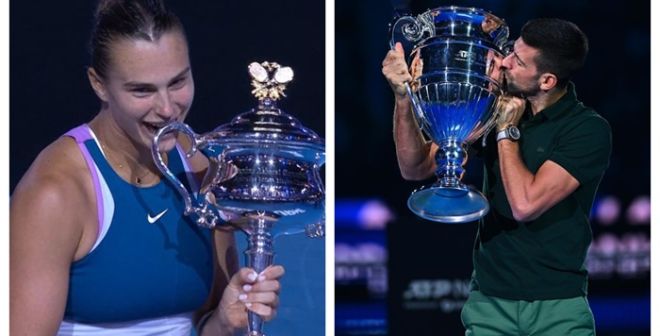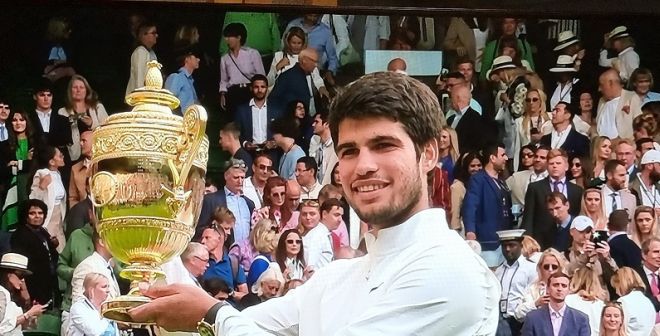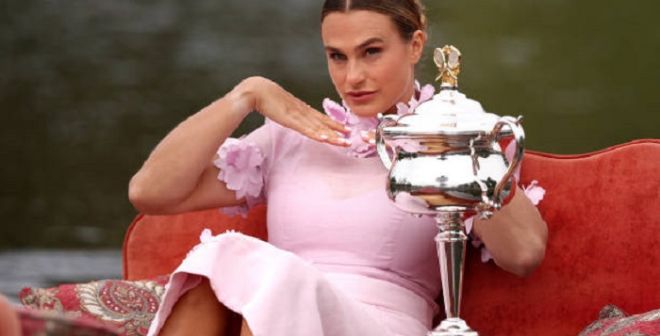The year is 1973 and in tennis it was a significant year. It was the year a great number of the men players decided to boycott Wimbledon. It centred around an East European player named Nikki Pilic who, in a nutshell, had been suspended by the Yugoslav tennis federation when it claimed he had refused to play Davis Cup.
Not that his fellow players were enamoured by Pilic, but they used the situation as the catalyst for the players to demand a greater say in their profession and it resulted in the creation of the Association of Tennis Professional (ATP).
Ironically that year Wimbledon hosted the first and to this date the only all East European final. It was between a Georgian who played under the Soviet Union, Alex Metreveli and a Czechoslovakian (now Czechia), Jan Kodes who ended up winning the title in three sets.
Wimbledon was not a case, by any means, that Metreveli got through to the final because a lot of other big names had boycotted the tournament. He proved that he was more than capable of being at the pointy end of the majors by reaching the semis at the Australian Open and the French Open and the quarters at the US Open. Plus, very soon after that Wimbledon final Metreveli, who had a stinging single handed backhand, beat Bjorn Borg on grass in the final at Beckenham. On top of that Alex had even been ranked in the world’s top ten.

He was twice a Wimbledon mixed doubles finalist with his friend Olga Morozova who made the women’s singles final at the All England Club in 1974 losing to Chrissie Evert. Alex had also been a finalist in the Wimbledon junior boys in 1962 at the age of 17 and was a winner of nine tour level singles titles and had an impressive 474-161 career singles win-loss record.
Not long after retiring as a player he turned his attention to politics and for a period was Minister for Sport but the bureaucracy of being in such a position would send anyone nuts. After a period, he decided enough was enough and left that post.
Now 80, Alex Metreveli has been doing tennis TV commentary for a great many years; nowadays on his own since his long-time on-air partner Anna Dementieva passed away last year. He doesn’t play tennis anymore due to an on-going knee issue, but he delights in spending time in his garden in the suburbs of Tbilisi.
But if there is one thing that is totally out of the box when it comes to knowing about Alex Metreveli is a symbolic honour that was bestowed upon him. He is an Honorary Australian Citizen. That sort of status is bestowed by a city or government on a foreign individual whom it considers to be especially admirable or otherwise worthy of the distinction.
He is amused with it and with a laugh said: “I don’t know; I can’t remember how that happened, but I think it was in 1972 or 1973.” Well maybe it was because he won five state championships in Australia.

The opportunity came up for a visit to Tbilisi, Georgia, where Alex spends most of his time. After Roland Garros, I took the five-hour flight there to catch up with him. It had been a couple of years since I had seen him, and it was a true pleasure meeting up again. He looks great. The hospitality extended by him and his son Alexandre, everyone calls him Ako, who is head of the Georgian Tennis Federation, was truly overwhelming.
Georgia is a fascinating nation and well worth a visit. The food is wonderful (but not if you’re on a diet), Georgian wine has a longer history than French wine, the people were welcoming and the scenery such as the Caucasus mountains is truly breathtaking.
The Metreveli’s are doing so much for tennis in Georgia. They have been staging Challenger level tournaments for both men and women along with several smaller level events on red clay and hardcourts. As for junior development, it is outstanding – from May to October almost every week there are junior tournaments.
It would be fair to say that Alex was the father of tennis for the now defunct Soviet Union, and certainly for Georgia. He was really the one who opened the door, but surprisingly there was not quite the abundance of attention that would have, or should have, been expected, or provided him.
When asked why, he explained: “There was little or no television in the Soviet Union at that time.”
With it being Wimbledon time, maybe the All England Club could consider one particular gesture for Alex. 52 years ago, on the famed Centre Court he was presented with a finalist trophy, but over that half century that has passed, sadly, the trophy has been lost. Receiving a replacement would be a cherished moment and further recognition of a significant time of not just Wimbledon history but tennis history.










